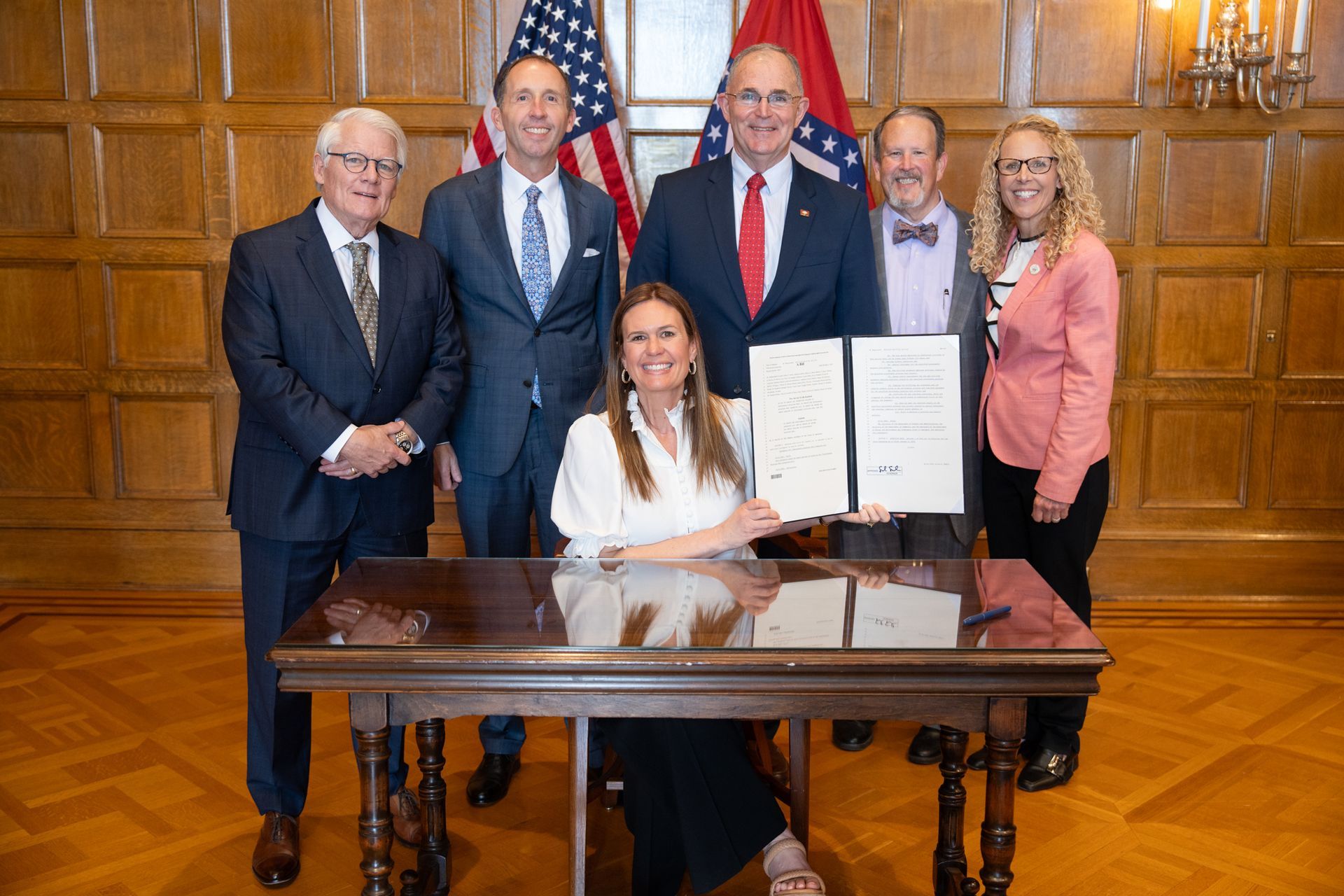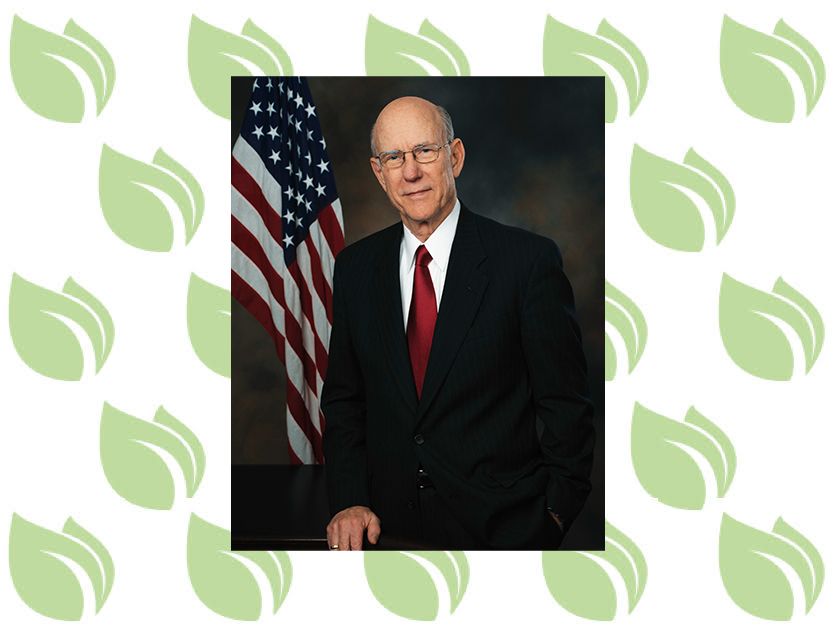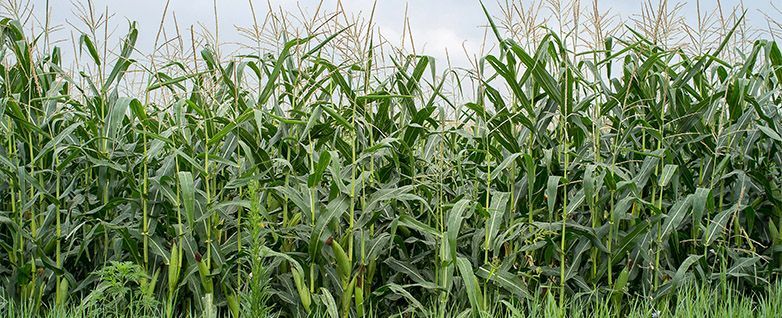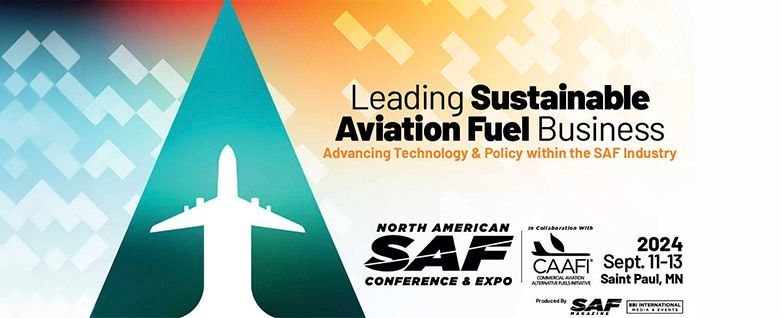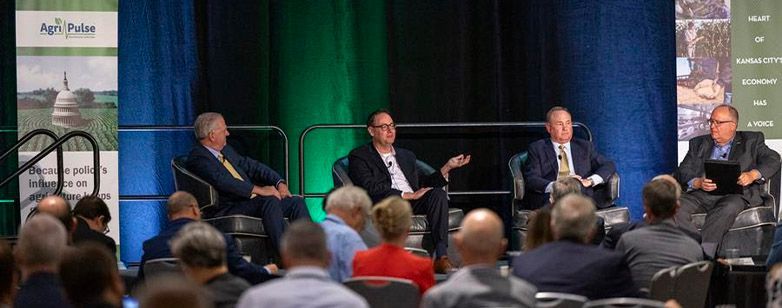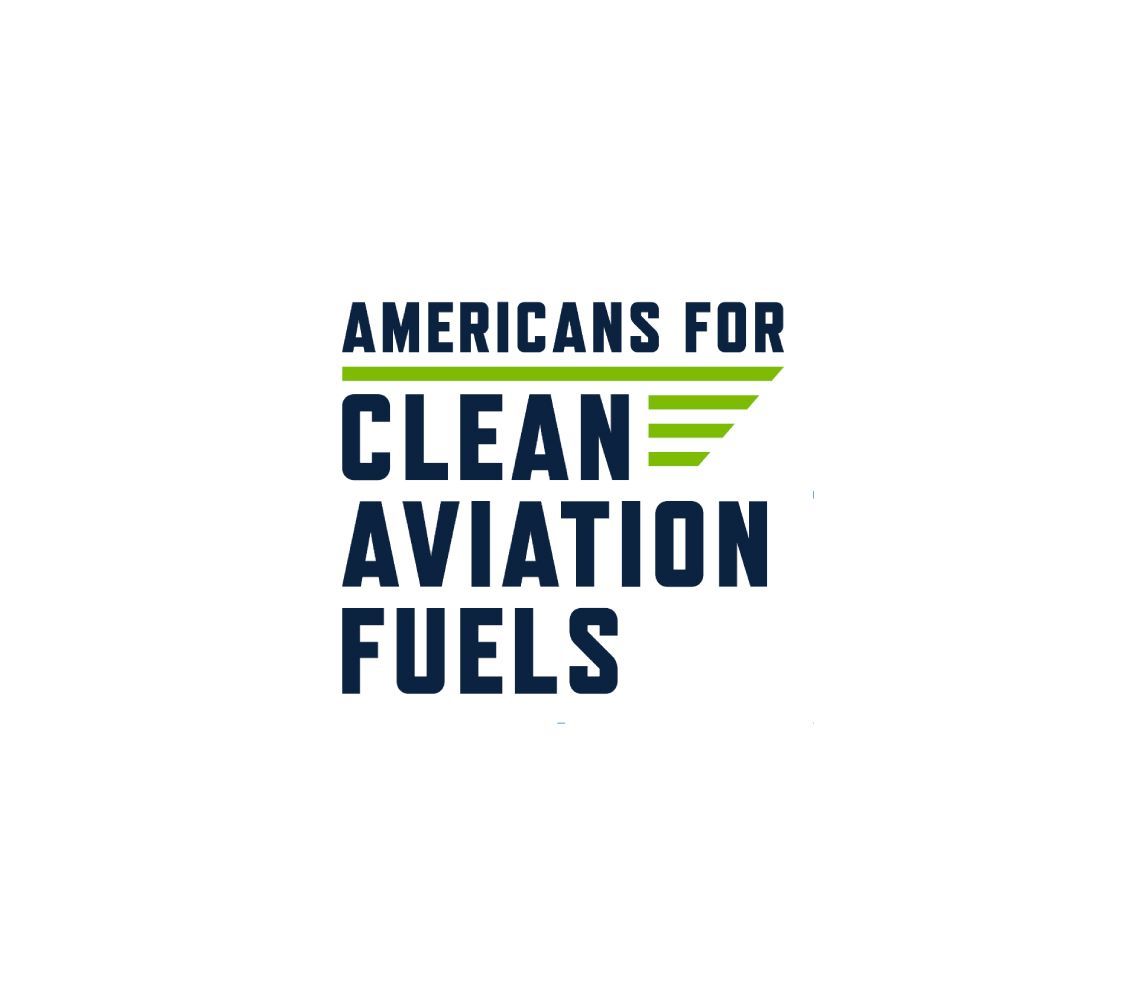ICYMI: Former Chairman of Senate and House Ag Committees: “Sustainable Aviation Fuel Could Help Clear the Air”
ICYMI: Former Chairman of Senate and House Ag Committees: “Sustainable Aviation Fuel Could Help Clear the Air”
Senator Pat Roberts (R-KS) highlights economics benefits of Sustainable Aviation Fuel in Wichita Eagle and Kansas City Star
In Case You Missed It:
Former Chairman of the Senate and House Agriculture Committees Pat Roberts (R-KS) authored an op-ed for the
Wichita Eagle and
Kansas City Star calling attention to the benefits of sustainable aviation fuel (SAF) for the American economy and our farmers, including those in his home state of Kansas. The former Senator – a senior Republican who served in Congress for 40 years – calls on lawmakers to prioritize a robust and enduring policy framework to scale up this promising clean fuel solution and put aviation on a path toward a more energy secure future.
“It’s no surprise that some of the largest industrial sectors in America have put their full weight behind scaling the SAF market,”
Roberts writes.
“Besides the environmental impact, scaling SAF would be a windfall for the American economy. Recent data shows it has the potential to attract over $1.5 trillion in private investment, create or support over 400,000 jobs and generate $78 billion in new economic activity.”
Roberts serves as a policy advisor
to
Americans for Clean Aviation Fuels - a national coalition that brings together leaders from the aviation, energy, and agricultural sectors to expand America’s clean aviation fuels market, including SAF.
Sustainable Aviation Fuel could help clear the air, former Kansas senator says | Opinion
By Former Sen. Pat Roberts (R-KS)
Wichita Eagle and Kansas City Star
July 15, 2024
In the quest to reduce carbon emissions in our economy, few challenges loom larger than the aviation industry.
Air travel accounts for a significant and growing share of global greenhouse gas emissions, yet it remains one of the most difficult sectors to decarbonize.
Unlike ground transportation alternatives, inventing a battery that would power a commercial plane across the country, let alone an ocean, is not in the foreseeable future.
Enter Sustainable Aviation Fuel, commonly called by the abbreviation SAF.
SAF is a biofuel or synthetic fuel that can be used as a drop-in replacement for traditional jet fuel, significantly reducing lifecycle carbon emissions without requiring changes to existing aircraft or infrastructure.
Carbon capture technology can also significantly aid in reducing the emissions from fuel production, as the technology harnesses CO2 emissions during the fuel’s creation.
SAF is a game changer and is the only scalable solution available today that can yield immediate results and drastically cut airline greenhouse gas emissions while promoting America’s energy independence and security.
It’s no surprise that some of the largest industrial sectors in America have put their full weight behind scaling the SAF market.
Airlines have committed to buying billions of gallons of SAF when it becomes available, and coalitions like Americans for Clean Aviation Fuels, which includes farmers, fuel producers and the aviation and agribusiness sectors, have banded together to educate the public and advocate for policies that will drive investment in the SAF market.
Besides the environmental impact, scaling SAF would be a windfall for the American economy.
Recent data shows it has the potential to attract over $1.5 trillion in private investment, create or support over 400,000 jobs and generate $78 billion in new economic activity.
But the path to scaling up SAF production and adoption is not a simple one.
TAX CREDITS NEEDED
Unfortunately, SAF represents less than one percent of the current market and costs two to four times more than traditional jet fuel.
To tackle this challenge, the 2022 Inflation Reduction Act included two tax credits for SAF production — the 40B and 45Z credits— which have spurred excitement and initial investment in the industry.
These credits are critical to catalyzing investment in domestic SAF production, delivering substantial domestic economic benefits.
However, the 40B Blenders Tax Credit is set to expire after just two years and transitions into a new three-year 45Z Clean Fuel Production Credit, creating uncertainty about the long-term economics of SAF production.
The credit is set to expire just around the time producers would be looking to bring new facilities online. Industry and value chain players generally need 10 years or more to appropriately plan and make strategic investment decisions.
To truly unlock the potential of SAF, lawmakers must prioritize a robust and enduring policy framework.
The Biden administration must also provide greater regulatory clarity and flexibility around the implementation of climate-smart agriculture practices, which adapt current farming practices to account for changes in the local climate, and incorporate processes such as cover cropping, nutrient management and conservation tillage.
The recent release of the administration’s Greenhouse gases, Regulated Emissions, and Energy use in Technologies — GREET— model guidance is an important step in the right direction, but American farmers are looking for a level of certainty that can only come from providing further clarity around the use of these climate-smart ag practices.
They need a framework that allows them to adopt regionally appropriate practices that have been rigorously validated as effective in reducing emissions. By crafting smart, science-based solutions, policymakers can incentivize the substantial investments needed to scale up these important farming techniques.
Another key challenge is the complex web of regulations governing biofuel production and use.
Many promising SAF feedstocks grown by today’s farmers, such as ethanol derived from cornstarch, are not currently approved as “advanced biofuels” under EPA regulations.
This limits their eligibility for key incentives. Streamlining the pathway approvals process for new SAF feedstocks represents low-hanging fruit and should be a top priority.
The 45Z credit offers a promising model on the legislative front, but must be extended well beyond its current 2027 expiration date.
Support beyond tax credits is needed as well — targeted federal grant programs and loan guarantees can also play a vital role in scaling up the SAF industry.
A Federal Aviation Administration FAST program, Fueling Aviation’s Sustainable Transition, includes support for SAF and is a good start. But it should be expanded and strengthened over the coming years to help reduce the risk of investment in this burgeoning market.
STATE HAS ROLE TO PLAY
State-level policies have an important role to play, too.
Several states, including Nebraska, Minnesota, Washington, and Illinois, have already passed their own SAF incentives.
These state-specific policies can complement federal measures, making SAF production even more economically viable and encouraging production beyond California.
In the coming years, expect to see a push for similar incentives in other key biofuel producing states across the corn belt.
By enacting smart, forward-looking policies today, we can help to scale up this promising clean fuel solution and put aviation on a path toward a more energy secure future.
The journey ahead may be long and turbulent, but the destination — a thriving, low-carbon aviation industry that supports American farmers and creates good jobs — is well worth the effort.
It’s time for policymakers, industry leaders, and stakeholders across the value chain to come together and make the promise of SAF a reality.
Former U.S. Sen. Pat Roberts, R-Kansas, served as chairman of the Senate Agriculture and Intelligence committees. He serves as a policy advisor to the Americans for Clean Aviation Fuels coalition.
Media Contact:
Mickey Sundermann
About Americans for Clean Aviation Fuels (ACAF)
ACAF is a dynamic coalition of industry leaders from the aviation, manufacturers, energy, and agriculture sectors, united in their mission to advance the production and adoption of clean aviation fuels. Committed to driving economic growth, reducing emissions, and bolstering national security, ACAF represents a pivotal force in propelling sustainable aviation practices in the U.S. while creating good-paying jobs. For more information about ACAF and to see a list of founding members, please visit www.americansforcleanaviationfuels.com


